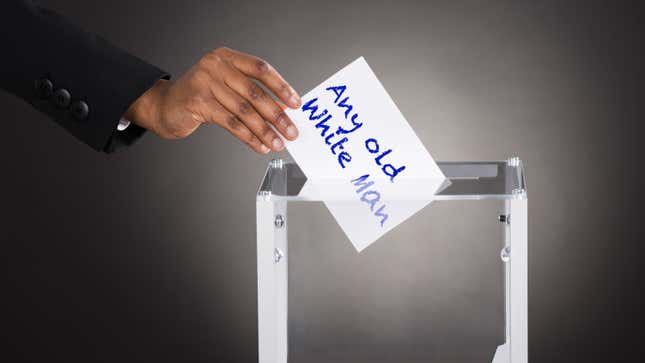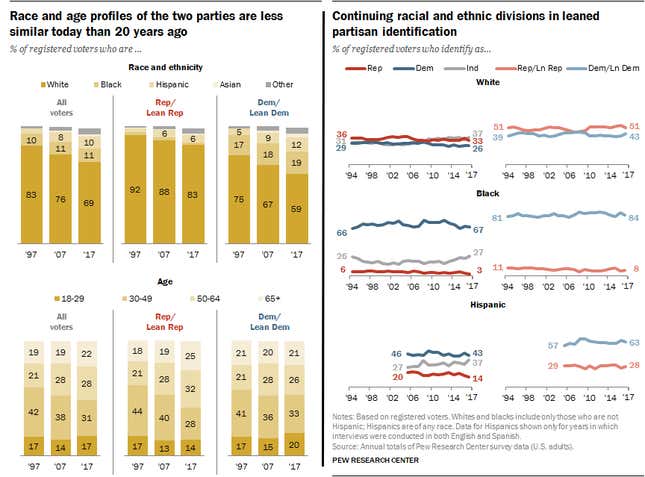
Black people know things.
Despite the systematic erasure of our history, the centuries-long intentional miseducation and the collective brainwashing that this country has inflicted on us, there are certain things that black people just know. Whether it is instinctive or passed down through generations, our continued existence depends on an inherited education that cannot be extinguished.
And of all the insight and expertise that black people have acquired in America, perhaps the most important and voluminous category of black knowledge is our understanding of our oppressors. Though it may sound crass, our survival depends on our acceptance of one inescapable truth:
White people will be white people.
Navigating this undeniable reality is the impetus behind the aphorism that “a black man must work twice as hard to get half as far as a white man.” This is why parents tell their sons to erase a few levels of bass in their voices lest they seem threatening when they talk to white men with guns, badges, or jobs of any kind of authority. It’s why black women leak forced smiles through their gritted teeth so they won’t be perceived as angry. Or sassy. Or “uppity.” Or just black.
This is also why, more than any other group, black voters believe in the concept of “electability.”
These subtle but necessary compromises are the results of our experience and expedience. They are examples of a shared situational awareness. Some call it “political pragmatism” but there is another word for it.
It is white supremacy.
With each passing day, political pundits parse the chances for the combatants in the political melee for the Democratic Party’s presidential nomination. Perhaps the No. 1 reason experts give for each contender’s likelihood of winning is “electability”—specifically, a candidate’s chances of beating Donald Trump in the general election.
Every reputable poll will overtly refer to the monolithic “black vote.” But if you listen to any dissection of the presidential race, you’ve likely heard the list of euphemisms for the other groups, which includes:
- Working-class voters
- Soccer moms
- Rural voters
- NASCAR Dads
- The religious right
- Moderate voters
- Suburban voters
Although they may sound phonetically different, those categories all refer to white people. Political experts all concede that to win a national election, candidates of either party must somehow appeal to these groups. This line of reasoning is almost universally accepted. It’s why the Democratic Party always defaults to an old, white pol who becomes the presumptive nominee.
And we believe it.
It was not until Barack Obama proved himself to black voters that he became a viable challenger to Hillary Clinton. In her second run for president, Hillary based her entire 2016 primary campaign on the fact that she was the more electable Democrat, despite her losing a previous election. Joe Biden’s candidacy and lead in the polls is based wholly on the myth that he can stand on stage, stare Donald Trump in the eyes and defeat the dotard in chief even though Kamala Harris tore Biden apart like a soggy, store-brand paper towel in the first Democratic debate. Biden readily admits that he bowed to the will of segregationists and white supremacists when he actually had a position of power but now he wants us to believe that he will fight for us. Black candidates, however, have to defeat better-known candidates, the party establishment and the presumption that only a white man can beat a white man.
But it may not be true.
In the past 30 years, no Democrat has ever won the white vote, no matter how moderate they were. In his 2012 victory, Barack Obama essentially won the same percentage of white voters (39 percent) as Hillary Clinton in 2016 (37 percent), John Kerry in 2004 (41 percent) and Al Gore in 2000 (42 percent), Bill Clinton in 1992 (39 percent) and Michael Dukakis in 1988 (40 percent). White voters are never going to vote for a Democratic candidate. Even though he was a moderate, Obama was successful because he got the highest black voter turnout in recent history.
As the demographics of America’s electorate changes, white voters become less important and other voters become more crucial to victory. According to Pew Research, white people made up 83 percent of all registered voters in 1997. Twenty years later, the number has dipped to 69 percent. And every other demographic group—black, Hispanic and Asian—overwhelmingly lean Democratic.

The most recent midterm elections showed that progressive and non-white candidates could win in places that are majority white. Ayanna Pressley won a Congressional district with mostly white voters. If not for a few voter suppression tricks, Stacey Abrams and Andrew Gillum may have won governorships in traditionally red Georgia and swing state Florida. Black voters in Alabama propelled Doug Jones to a Senate seat in one of the reddest states in the country.
Yet, in their pragmatism, black voters and other Democrats reflexively support candidates like Hillary Clinton and Joe Biden partly because of this myth of electability that is based on the idea that white voters will only support fence-riding, old, white establishment politicians who drink Budweiser and dance offbeat. Nothing could be further from the truth.
If there was ever a time to prove that electability is a myth based on nothing but white supremacy, it’s with a president like Donald Trump whom left-leaning, sensible moderates would never cast a ballot for. Otherwise, the myth of electability ensures a future of old moderate white candidates who throw empty promises at black voters and are unwilling to take the bold steps that are needed to fight discrimination.
But that’s how white supremacy works.
White supremacy is the shadow of a long-gone ghost that still haunts this country. It is embedded in every political, social and economic system in America, but its only power is that, like many white people, we have also been convinced to believe in something that is not real. Not only have we been bamboozled into thinking that we can dismantle the master’s house with the master’s tools, but they have hoodwinked us into thinking that the master will help us tear down his four-centuries-old homestead.
Trust me, he will not.

